International Round Table Phase I for Advancing Skills in STEM Education

The report outlines the International Round Table for Advancing Skills in STEM Education, which was led by Dr. Eli Eisenberg, Prof. Arnon Bentur, Dr. Avigdor Zonnenshain, and Tamar Dayan in January 2023. The initiative was organized by the Samuel Neaman Institute and involved various central bodies and institutions in Israel and worldwide. The document provides a comprehensive overview of the initiative, its objectives, methodologies, and key insights from the discussions. It aims to develop a common language and practical tools for promoting STEM excellence skills in education.
Teaching systems thinking skills in engineering and scientific education

The research report on teaching systems thinking skills in engineering and scientific education concisely presents definitions, process (methodology) and tools for systems thinking and on their basis reviews a number of relevant approaches, means and training programs for teaching systems thinking in the worlds of science and engineering.
Social and Economic Implications of Employee Cutbacks

Introductory remarks Prof. Bilha Mannheim This seminar, held in the framework of the Samuel Neaman Institute for advanced studies in science and technology at the Technion and in cooperation with the Haifa district New Labor Organization, is the third in a series of seminars held in the last three years in this framework. It is […]
Survey of medical school graduates in Israel 1981-2000
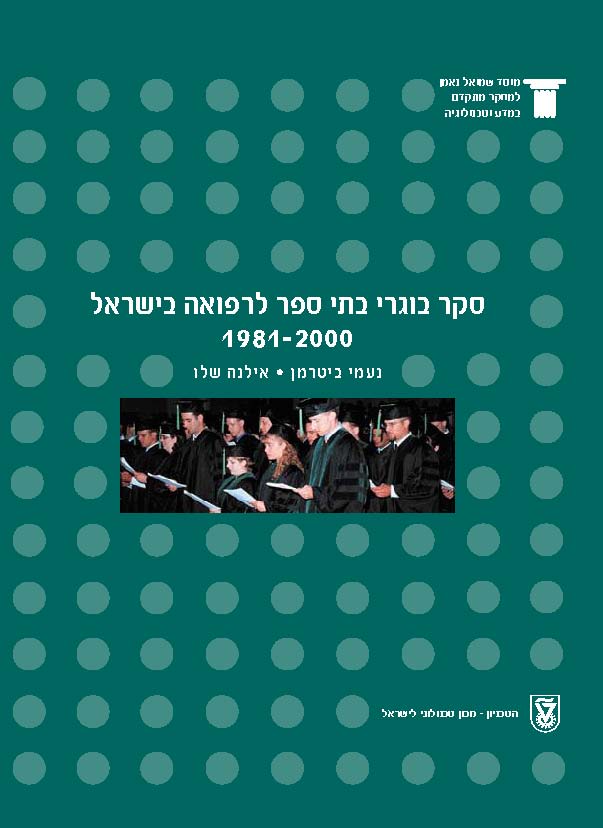
The medical profession is undergoing major changes – it has become a multidisciplinary occupation requiring a wide variety of new skills in “cutting edge” of biomedical research and advanced techniques, as well as expertise in healthcare economies, management and proficiency in ethics and legal issues. Based on the growing importance of biomedical research and life […]
Human Resources Policy in an Age of Change, 1994, (Internal Report)
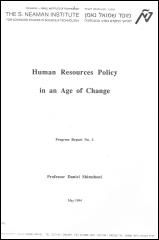
Open-ended discussions were held with managers and group leaders, most of whom have technical responsibilities. The agenda included: (a) The nature of the technical problems faced in process and product development and innovation, or that arise in production and servicing; (b) The role of the capabilities and experience of individuals in the solution of such […]
The Scarcity of Electronics Engineers and Computer Sciences Graduates in Companies Belonging to the Electronics Industry Association.
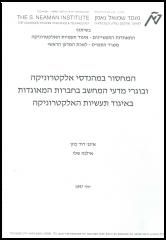
This report summarizes a survey that was conducted in the months January-June 1997 in order to understand the shortage of electronic engineers and computer science graduates in companies incorporated in the Society of Electronic Industries. The survey was prepared by Ing. David Kohn and Ilana Shalev of the Samuel Neaman Institute at the initiative of […]
Trends in Demand for Electronics Engineers and Graduates of Computer Sciences

This report sums up a survey on electronic companies members of the Union of Electronic Industries, conducted during the months May and June 1993. The survey used questionnaires which the companies were requested to fill out. It included the following items: Identifying information about the company, sort of ownership, money (sales, exports, R&D budget), manpower, […]
Principles and Systems for Planning of Human Resources in Research and Technology in the OECD Countries, and Lessons for Israel
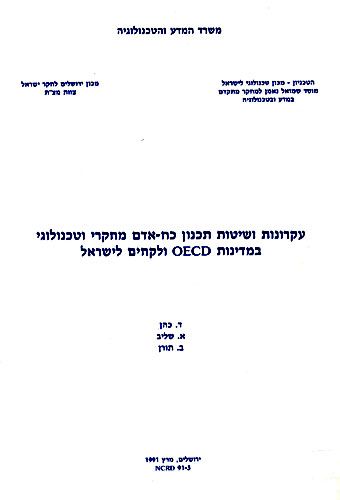
The aim of manpower planning is to ensure efficient use of human resources in a certain country or economic branch, or in a certain company from the point of view of both economic and social development. Opinions differ as to the need for manpower planning and even among those who believe that manpower planning is […]
Unique Characteristics in the Development of the Technion – Academic Excellence, National Contribution, Managerial Culture
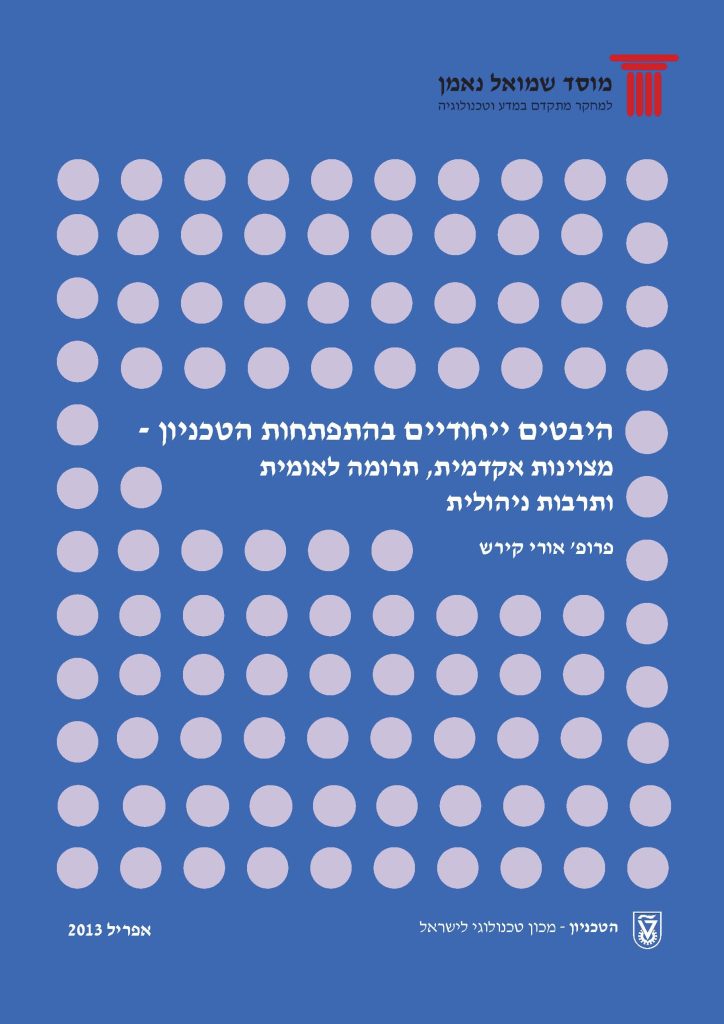
An attempt has been made, to understand how the Technion has succeeded to become a renown technological research University, and at the same time – to play unprecedented role in the development of Israel. Unique Characteristics that have been developed over the years are discussed – the academic culture, the managerial culture, the national contribution […]
Manpower Needs in the Maritime Sector as a National Resource

This report summarizes Part A of the work. The research aims to examine the following aspects in the field of ‘The Sea as a National Resource’: what professional disciplines are required, what educational continuum is currently provided within academic institutions, what human resource needs will be required in the field, what gaps exist, and what recommendations are needed to fill these gaps. The work will help expand understanding and knowledge regarding future scientific and technological human resource requirements for the field, providing background and a situation assessment that will contribute to policy-making processes and strategy development for investments in human resource training.
